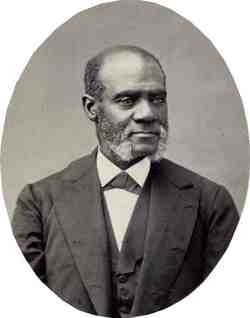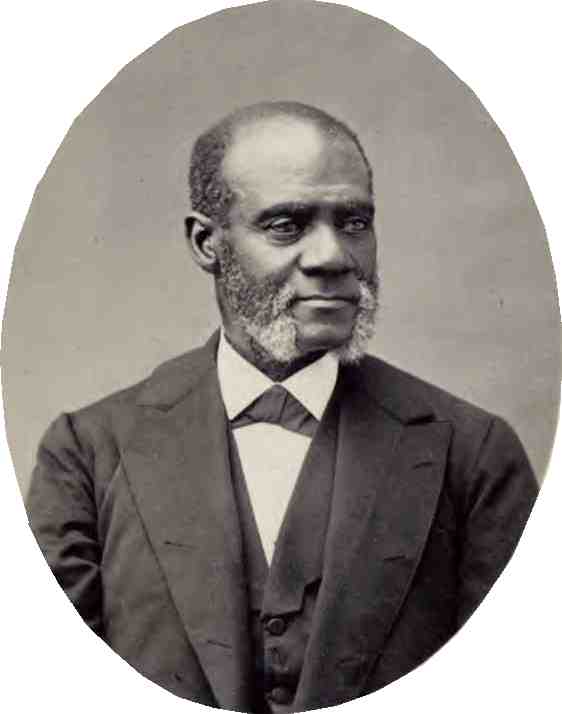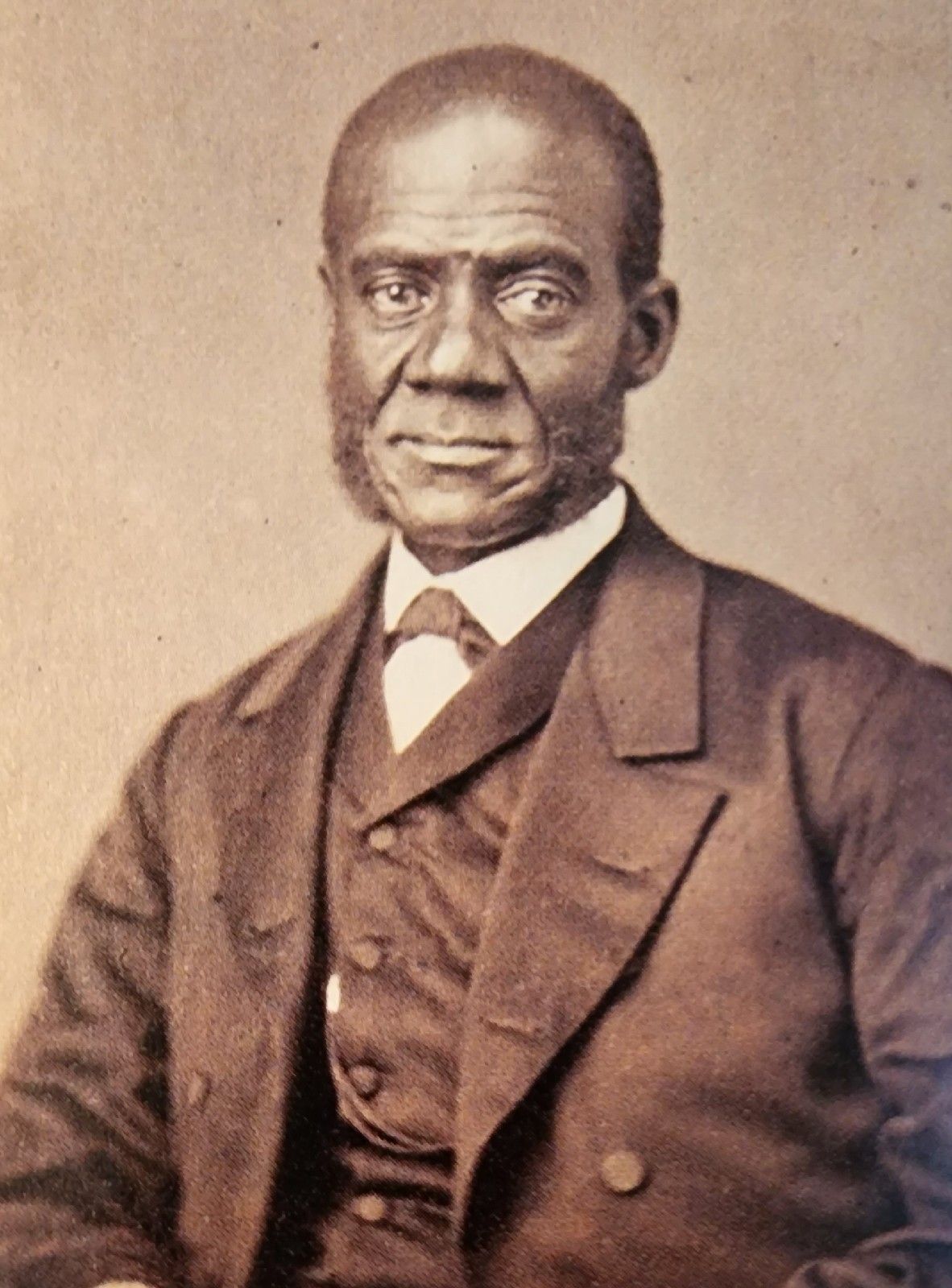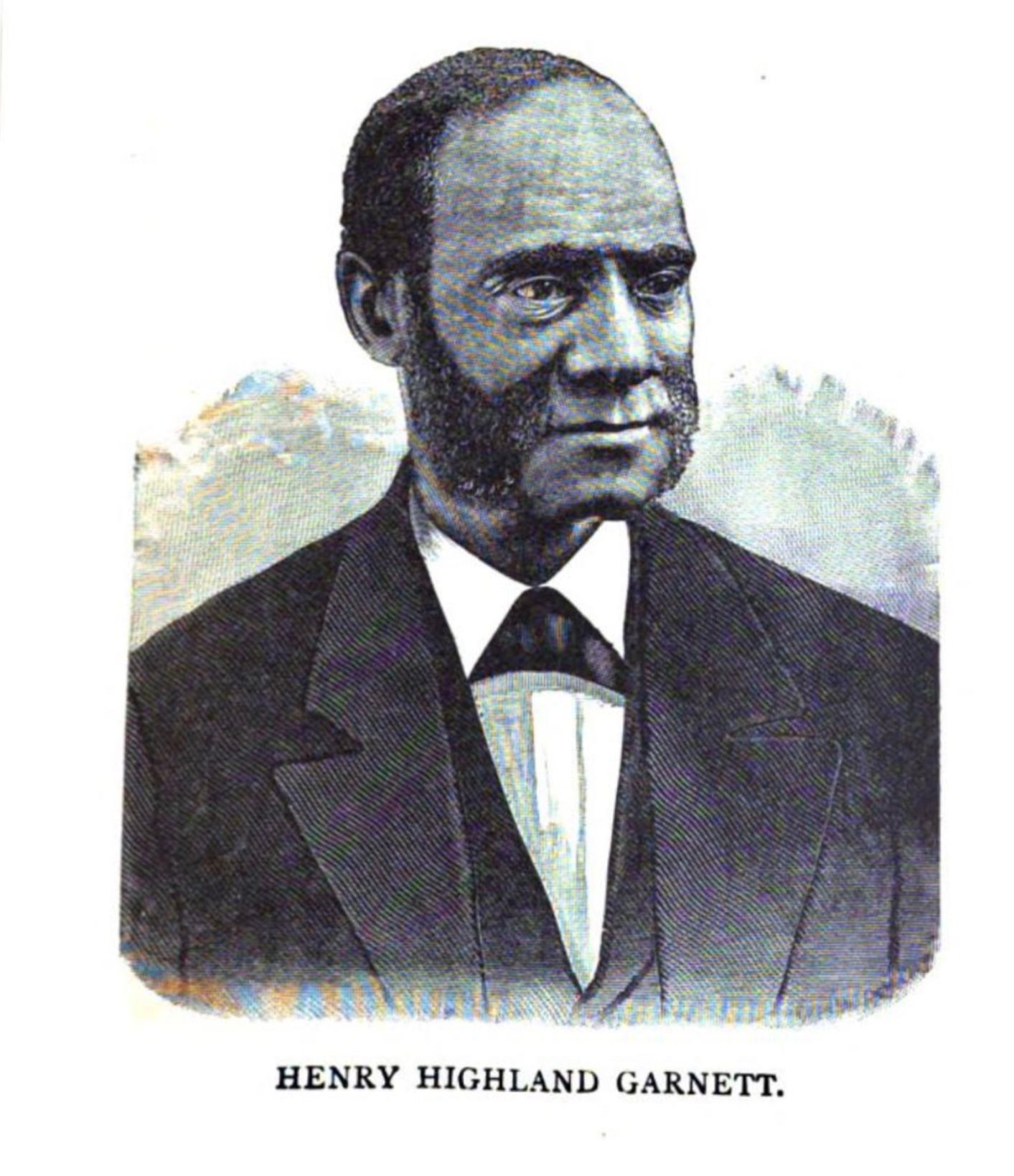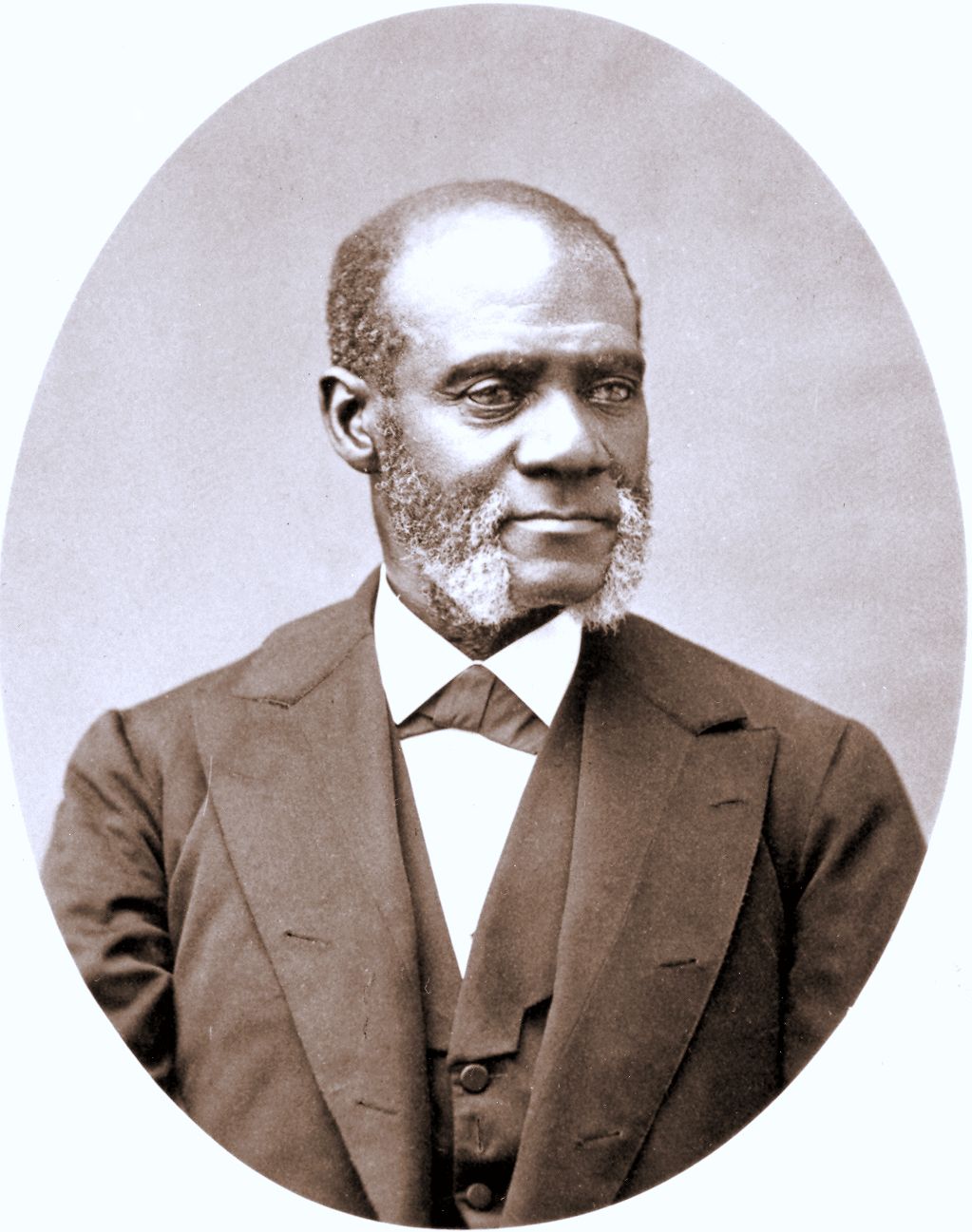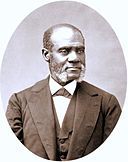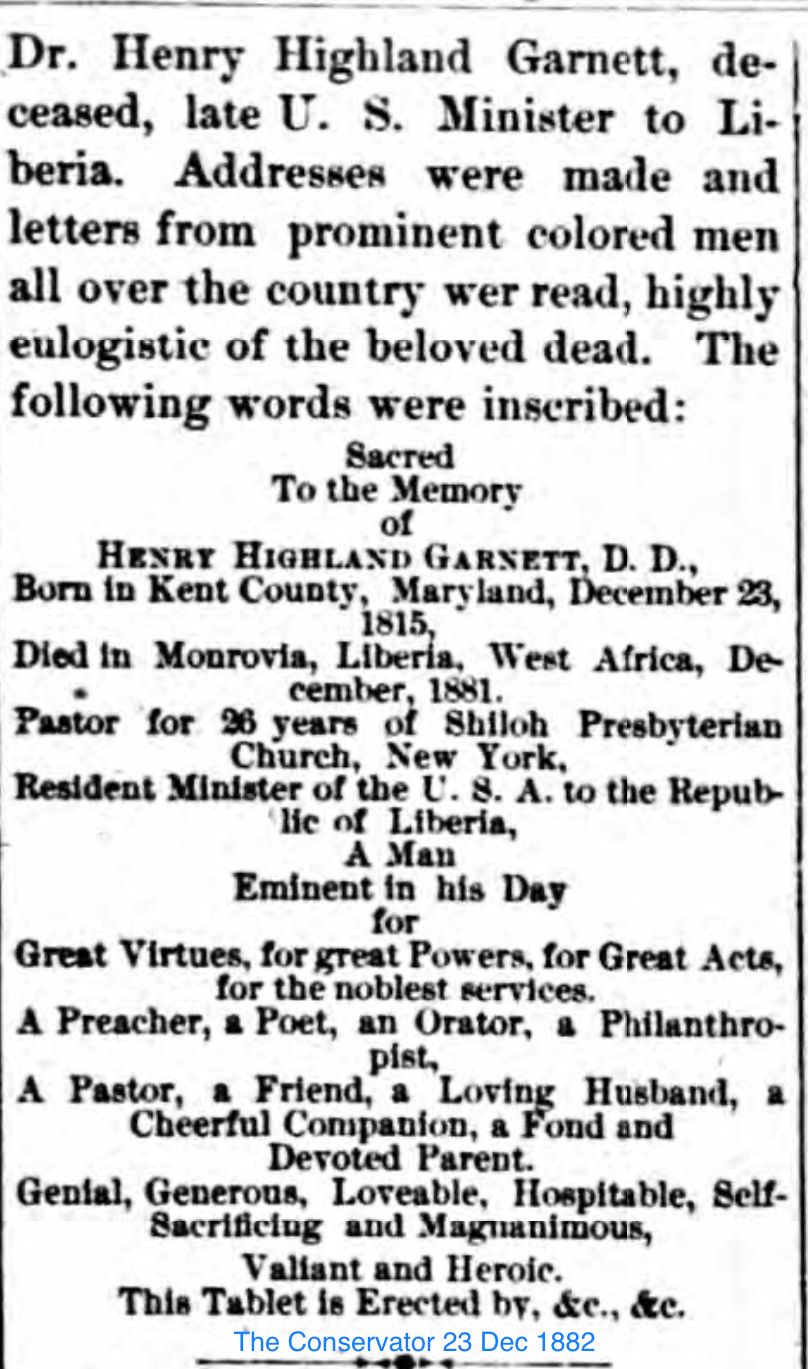Garnet was a prominent member of the movement that led beyond moral suasion toward more political action. Renowned for his skills as a public speaker, he urged black Americans to take action and claim their own destinies. For a period, he supported emigration of American free blacks to Mexico, Liberia, or the West Indies, but the American Civil War ended that effort. In 1841 he married abolitionist Julia Williams and they had a family. They moved to Jamaica in 1852 to serve as missionaries and educators. After the war, the couple worked in Washington, DC."
-Wikipedia article∼Leading Black Abolitionist and Clergyman. Born a slave, Garnet escaped in 1824 and made his way to New York. There he pursued an eductaion and eventually became a Presbyterian Minister. Garnet became associated with the American Anti-Slavery Society and his career in the late 1830s and early 1840s joined preaching with agitiation for emancipation. A nationally known figure, he shocked his listeners at the 1843 national convention of free people of colour when he called upon slaves to murder their masters. The convention refused to endorse Garnet's radicalism and he gradually turned more to religion as Frederick Douglass assumed the role of premier black Abolitionist. Durning the next two decades, Garnet served as pastor in a number of Presbyterian pulpits. While at his post in Washington D.C, in 1864 he aided the war-related displaced and distressed. Later he assisted government workers in developing programs to help former slaves. In 1881 Garnet was apointed minister to Liberia. In his younger, more radical days he had vigorously opposed plans to solve America's slavery problem by sending blacks back to africa. Toward the end of his life, however he favoured U.S. blacks emigration back to Africa. Within two months of arrival in the African nation, though he died.
Garnet was a prominent member of the movement that led beyond moral suasion toward more political action. Renowned for his skills as a public speaker, he urged black Americans to take action and claim their own destinies. For a period, he supported emigration of American free blacks to Mexico, Liberia, or the West Indies, but the American Civil War ended that effort. In 1841 he married abolitionist Julia Williams and they had a family. They moved to Jamaica in 1852 to serve as missionaries and educators. After the war, the couple worked in Washington, DC."
-Wikipedia article∼Leading Black Abolitionist and Clergyman. Born a slave, Garnet escaped in 1824 and made his way to New York. There he pursued an eductaion and eventually became a Presbyterian Minister. Garnet became associated with the American Anti-Slavery Society and his career in the late 1830s and early 1840s joined preaching with agitiation for emancipation. A nationally known figure, he shocked his listeners at the 1843 national convention of free people of colour when he called upon slaves to murder their masters. The convention refused to endorse Garnet's radicalism and he gradually turned more to religion as Frederick Douglass assumed the role of premier black Abolitionist. Durning the next two decades, Garnet served as pastor in a number of Presbyterian pulpits. While at his post in Washington D.C, in 1864 he aided the war-related displaced and distressed. Later he assisted government workers in developing programs to help former slaves. In 1881 Garnet was apointed minister to Liberia. In his younger, more radical days he had vigorously opposed plans to solve America's slavery problem by sending blacks back to africa. Toward the end of his life, however he favoured U.S. blacks emigration back to Africa. Within two months of arrival in the African nation, though he died.
Family Members
Advertisement
Advertisement
